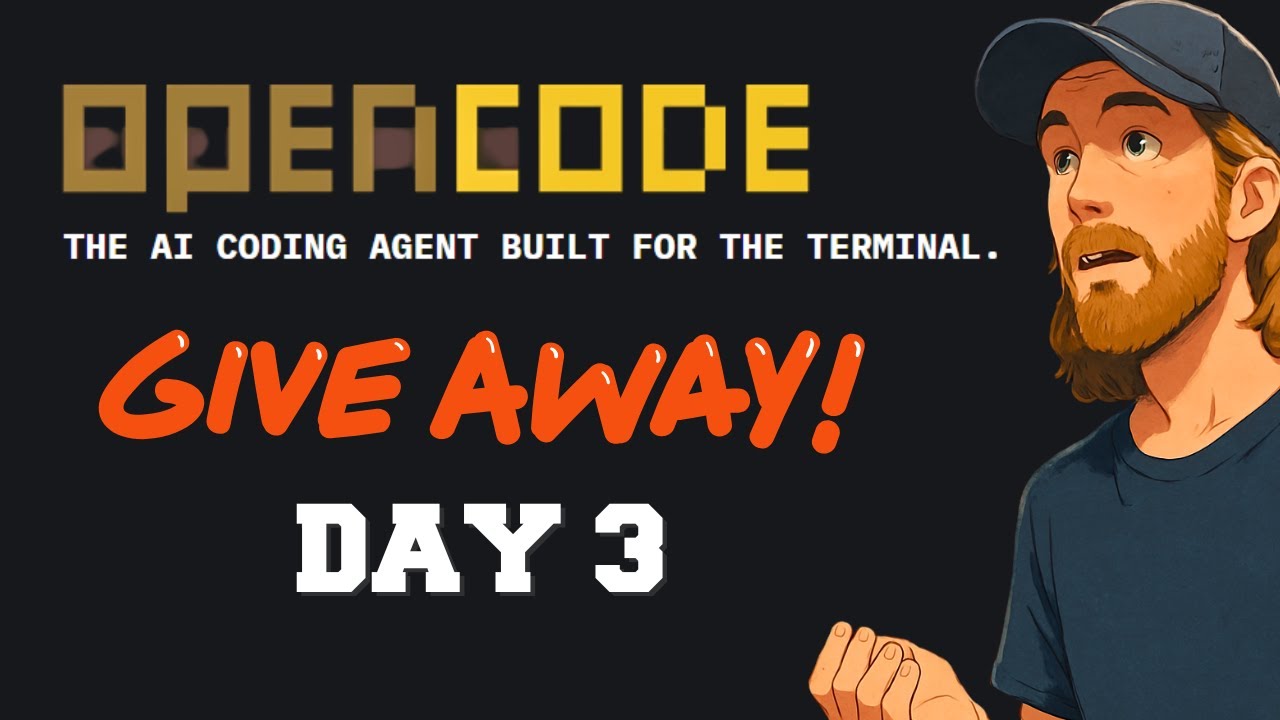The livestream explores and compares various AI models and tools like Genie 3, GPT-OSS, and Claude Opus 4.1, focusing on their coding, graphical, and interactive capabilities, while engaging viewers through polls and discussions on robotics and AI integration. It concludes with a giveaway for AI tool subscriptions, reflections on recent AI advancements, and excitement for future developments such as GPT-5.
The video is a live stream discussion and exploration of various AI models and tools, including Genie 3, Open Code, GPT-OSS, Claude Opus 4.1, and others, with a giveaway announced at the end. The host interacts with viewers, testing different AI coding tools and models, sharing impressions, and comparing their capabilities. Open Code is highlighted as a promising open-source alternative for agentic coding, though it currently struggles with tool calling and integration issues. The host also experiments with models like Quen 3, Horizon Beta, and GPT OSS 120B, noting differences in performance, especially in coding tasks and UI generation.
A significant portion of the stream is dedicated to testing and comparing AI-generated SVG graphics, such as a pelican riding a bicycle, across models like Opus 4.1, Gemini Deep Think, and Horizon Beta. The host conducts a viewer poll to determine the best output, with Gemini Deep Think and Opus 4.1 receiving high praise for their artistic quality and detail. The stream also explores more complex AI-generated animations, including black hole mergers, showcasing the graphical and computational capabilities of these models. The host discusses the challenges of running large models locally and the trade-offs between speed, quality, and hardware requirements.
The stream delves into the new Genie 3 world model, which generates dynamic, interactive 3D environments from text prompts with real-time interactivity and world memory, allowing persistent changes in the environment. The host expresses excitement about the potential applications of Genie 3 in gaming, robotics training, disaster preparedness, and embodied AI research, while also noting current limitations such as slow rendering and lack of NPC interaction. The discussion includes speculation about future features like image-to-world conversion and integration with AR, highlighting the innovative nature of this technology.
Robotics and AI integration are also discussed, with the host showcasing videos of humanoid robots and robotic assistants capable of carrying payloads and performing tasks like laundry. The conversation touches on the timeline for widespread adoption of humanoid robots in homes and public spaces, with predictions ranging from one to ten years. The host emphasizes the rapid advancements in robotics and AI, while acknowledging the high costs and current limitations of these technologies. Viewer engagement includes sharing opinions on the best AI models for coding and local deployment, as well as the challenges of tool calling and API integration.
Towards the end of the stream, the host organizes a giveaway for a pro subscription to Claude Code or ChatGPT, inviting viewers to participate by entering a keyword in the chat. Using a custom MCP server connected to the live chat, the host collects entries and runs a Python script to randomly select winners, creating anticipation and interaction with the audience. The stream concludes with reflections on the week’s AI developments, anticipation for the upcoming GPT-5 release, and gratitude towards the community for their participation and support.
